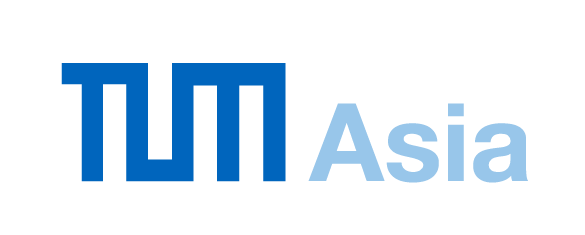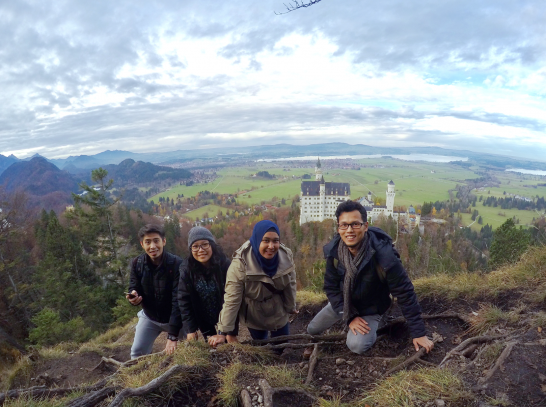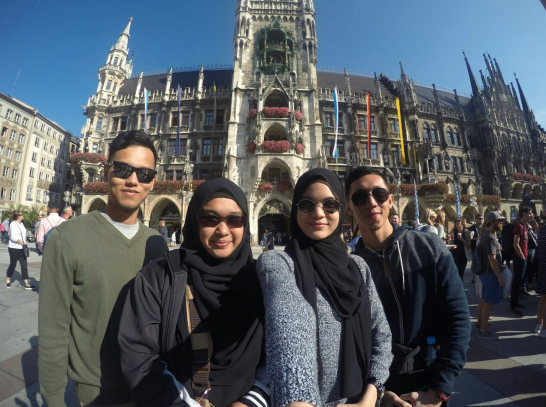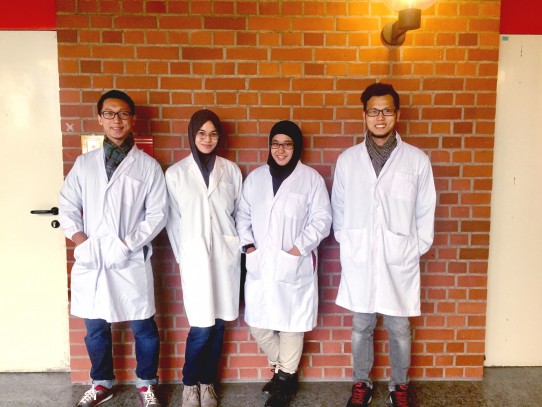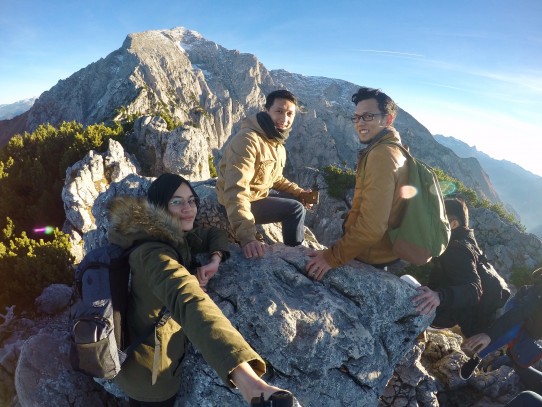The Overseas Immersion Programme (OIP) is a highlight for most TUM Asia final- year undergraduates. Students spend three to five months at the home campus in Munich, Germany, taking in many new experiences in the German Engineering Industry along the way while completing their Bachelor Thesis. Muhammad Ariff Hollis, or Ariff for short, recently spent five months in Germany for OIP. From living with classmates, to traveling around Europe experiencing a new culture, we catch up with Ariff for a summary of his cultural exchange during his OIP.
Hi Ariff, congratulations on finishing the final lap of your undergraduate studies! Can you tell the readers how studying in Germany has been for you?
Ariff: Germany has definitely opened my eyes to how much a country has to offer in terms of quality education. The reputation and richness of the engineering industry is amazing. There is however, a similarity in the level of stress when it came to quizzes and exams. I guess I can say that my junior college education was only the tip of the iceberg as compared to my university journey.
Has your time in Europe shaped new perspectives on life?
Ariff: To me, the OIP trip is a bonus to our university experience. There is no better way to end off an education experience with a trip to a place as advanced as your home country. Living in Germany has allowed my friends and I to acclimatise ourselves to a different way of life. One example would be the recycling effort we have picked up, since all Germans take it seriously. This means we now put in our empty plastic bottles for recycling, and also bring re-useable bags when grocery shopping.
Each student chooses a topic for the Bachelor thesis. Can you tell us more about your topic, in relation to
how it will affect everyday life?
Ariff: With limited resources of crude oil and the rising demand of it, more can be done to utilise residues of refineries. However, they would require suitable catalysts in order to be purified from sulphur, nitrogen and other impurities. My thesis topic involves research on the operations of a trickle bed reactor system and heterogeneous catalysis. Through this, resources should increase in utilization with minimal wastage, which is beneficial for the environment. On an economic basis, if a suitable and low cost catalyst could be produced, more refineries can commit to refine these “wasted” components of crude oil.
Many worry that living in Germany requires that you speak fluent German. Is this true for you?
Ariff: I did take a basic A1 course at the Goethe Institut before I enrolled for my Bachelor’s degree. This is not sufficient for fluent conversation but it gives you an idea. In Germany, it was not easy to use my limited German, but through a few encounters with the locals and the constant announcements on the trains, you will get used to it. When living in a foreign speaking land, knowing the language is an advantage. It certainly helped with shopping and other everyday affairs.
As you move on to your career after completing your studies, what will be one special takeaway from your OIP experience?
Ariff: Surprisingly, it will be cooking! Being away from the convenience of ready-made halal food or home cooked food forced me to learn some basic cooking skills. After a while, it became mundane to eat the same type of food and I had to think out of the box to create more creative dishes for my own meals in Munich.
—
Ariff studied in the Bachelor of Science degree in Chemical Engineering with the Technical University of Munich. She studied in the Singapore branch campus (TUM Asia) and spent five months in Munich, Germany to complete her lab courses and thesis at the home campus of the university.
To read the full interview with Ariff, it was first published in our DIGEST newsletter (Jan 2017). View the e-newsletter here >>
TUM Asia administrates the TUM Bachelor degrees together with the Singapore Institute of Technology (SIT). GCE ‘A’ Levels, Polytechnic Diploma and international qualification holders may apply for the TUM Bachelor degrees. Find out more about the programmes offered >>
Interested students may apply for the TUM Bachelor of Science programmes from January to March every year.
Applications are accepted at our partner university’s admission site: https://admission.singaporetech.edu.sg
